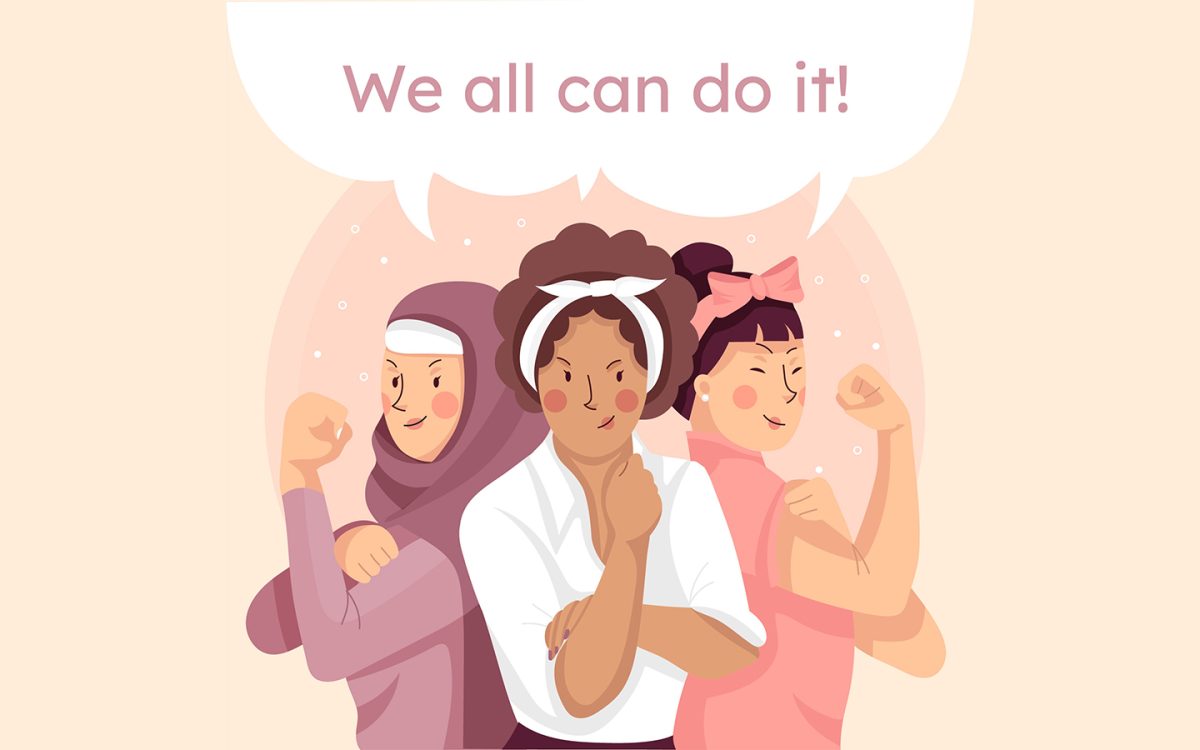From revolutions to everyday societal functions, women have served as some of the most instrumental figures during important moments throughout history. As activists, writers, artists, journalists, leaders, friends and family; but most importantly, as individuals. Women have been at the core of movements for radical change in society, but so often, their crucial roles are erased or forgotten. As women all around the world continue to trudge for another tiresome year of femicides, domestic violence and rampant misogyny; it is important to keep these wonderful women in mind to keep the hope for liberation alive and well.
Selena
 Selena Quintanilla-Pérez, or more commonly known as Selena, was a Grammy-Award winning Mexican-American singer of the 1990s, and widely regarded as the “Queen of Tejano Music.” She is best known for popular songs like “Como La Flor” and “Bidi Bidi Bom Bom.” With her powerful voice and fearless personality, she began singing as the lead vocalist for her family’s band, Selena y Los Dinos, at the mere age of nine. In 1994, she released one of her famous albums, “Amor Prohibido”, and opened her boutique the same year.
Selena Quintanilla-Pérez, or more commonly known as Selena, was a Grammy-Award winning Mexican-American singer of the 1990s, and widely regarded as the “Queen of Tejano Music.” She is best known for popular songs like “Como La Flor” and “Bidi Bidi Bom Bom.” With her powerful voice and fearless personality, she began singing as the lead vocalist for her family’s band, Selena y Los Dinos, at the mere age of nine. In 1994, she released one of her famous albums, “Amor Prohibido”, and opened her boutique the same year.
Selena was an unconventional beauty. With her darker skin and curves, she allowed young Latin American girls to see themselves represented in one of the most talented artists of her time, during a time in which the media in both Mexico and the United States strongly emphasized eurocentric beauty standards. She encouraged children to stay in school and to follow their dreams. In 1995, Selena was shot and killed, but she continues to live on through her timeless music. Her memory was further cemented into history with the posthumous release of her “Dreaming of You” album, which became one of the best-selling Latin American albums of all time. Selena’s impact on the Mexican-American community cannot be replicated, and is now remembered as one of the most iconic and influential figures of Latin American music.
Marsha P. Johnson
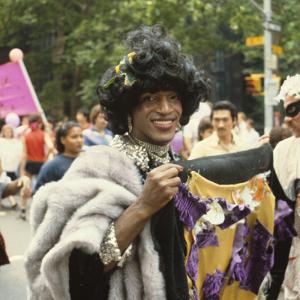 Marsha P. Johnson was one of the strongest driving forces behind the relentless gay rights movement of the 1960s and 1970s in New York City. Johnson’s fierce advocacy for the rights of the LGBTQ+ community began when police officers raided a gay bar at the Stonewall Inn, arresting its employees and patrons on June 28, 1969. As the people started to fight back, Johnson joined and quickly became active in rallies and protests for LGBTQ+ rights soon after.
Marsha P. Johnson was one of the strongest driving forces behind the relentless gay rights movement of the 1960s and 1970s in New York City. Johnson’s fierce advocacy for the rights of the LGBTQ+ community began when police officers raided a gay bar at the Stonewall Inn, arresting its employees and patrons on June 28, 1969. As the people started to fight back, Johnson joined and quickly became active in rallies and protests for LGBTQ+ rights soon after.
Johnson involved herself with the Gay Liberation Front and the Gay Activist Alliance, but became frustrated with the way transgender and queer voices of color were often excluded from the movement. In 1970, Johnson and Sylvia Rivera, a trans woman from Puerto Rico who was also instrumental in the gay rights movement, formed the Street Transvestite Action Revolutionaries (STAR). This group aimed to provide shelter for homeless transgender individuals. After her H.I.V. diagnosis in 1990, Johnson also became vocal about the social stigmas surrounding H.I.V. and AIDS. She was later found dead in the Hudson River in 1992, one of the deadliest years for members of the LGBTQ+ community at the time. It was initially ruled a suicide, but the case later reopened for investigation twenty years later, after years of outrage and discontent from the community. Marsha P. Johnson’s legacy of freedom and solidarity continues to live on through her memory, and the impact she made on the LGBTQ+ community cannot be underestimated.
Ethel L. Payne
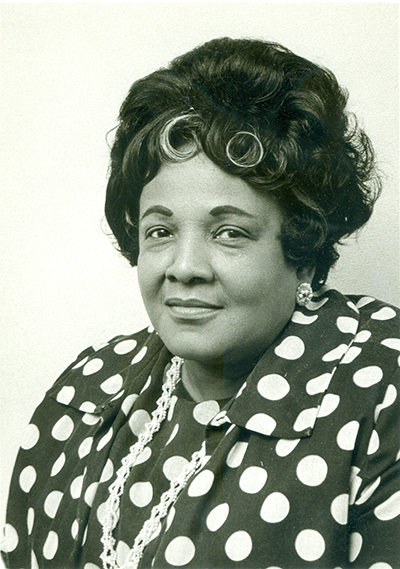 Known as the First Lady of the Black Press, Ethel L. Payne was a fierce journalist during the Civil Rights Movement. She was the first Black woman to be a part of the White House Press Corps during her time at the Chicago Defender, and often asked uncomfortable questions about taboo topics other journalists did not want to approach at the time. Throughout her career, she covered some of the most historically important moments and issues of the 20th century with an honest and straightforward writing style.
Known as the First Lady of the Black Press, Ethel L. Payne was a fierce journalist during the Civil Rights Movement. She was the first Black woman to be a part of the White House Press Corps during her time at the Chicago Defender, and often asked uncomfortable questions about taboo topics other journalists did not want to approach at the time. Throughout her career, she covered some of the most historically important moments and issues of the 20th century with an honest and straightforward writing style.
From the Montgomery Bus Boycott to the signing of the Civil Rights Act, Payne’s journalism contributed greatly to the Civil Rights Movement. She also covered international conflicts, such as the Nigerian Civil War, Vietnam War, and the Korean War. In 1970, she became the first Black woman to be hired by a national network as a radio and television commentator. She later taught at the journalism school in Fisk University and advocated for the release of Nelson Mandela during the late 1980s. In 1991, Payne passed away, but her legacy of fierce, fearless and truthful journalism continues to persist through time.
Queen Lili’uokalani
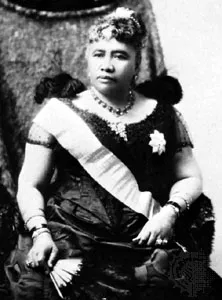 Following King Kalākaua’s death, Lili’uokalani became the next ruler of Hawaii. On Jan. 29, 1891, she was officially sworn in as queen. At the time of her ascension to the throne, the power of American settlers and sugar plantation owners had increased dramatically. In 1887, King Kalākaua was forced to sign the Bayonet Constitution. This undermined the authority of the Hawaiian monarchy, restricted the voting rights of the native Hawaiian people and granted voting rights to settlers. One of Queen Lili’uokalani’s primary objectives was to reverse the Bayonet Constitution and restore Hawaiian sovereignty and power to its people.
Following King Kalākaua’s death, Lili’uokalani became the next ruler of Hawaii. On Jan. 29, 1891, she was officially sworn in as queen. At the time of her ascension to the throne, the power of American settlers and sugar plantation owners had increased dramatically. In 1887, King Kalākaua was forced to sign the Bayonet Constitution. This undermined the authority of the Hawaiian monarchy, restricted the voting rights of the native Hawaiian people and granted voting rights to settlers. One of Queen Lili’uokalani’s primary objectives was to reverse the Bayonet Constitution and restore Hawaiian sovereignty and power to its people.
This began to threaten the power of American settlers and businessmen and their hold over Hawaii. A coup was organized and Queen Lili’uokalani was overthrown. Despite this, the Queen continued to fight for the independence of her people; she was imprisoned in 1895, though she was later released. In 1898, the same year the United States annexed Hawaii as a territory, the Queen published Hawaii’s Story by Hawaii’s Queen to preserve the history of her people. She also wrote one of Hawaii’s most famous songs, “Aloha Oe,” which has been interpreted to signify grief over Hawaii’s loss of sovereignty. In 1917, Queen Lili’uokalani passed away at seventy-nine, remembered and beloved as the last monarch of Hawaii.
Rashida Tlaib
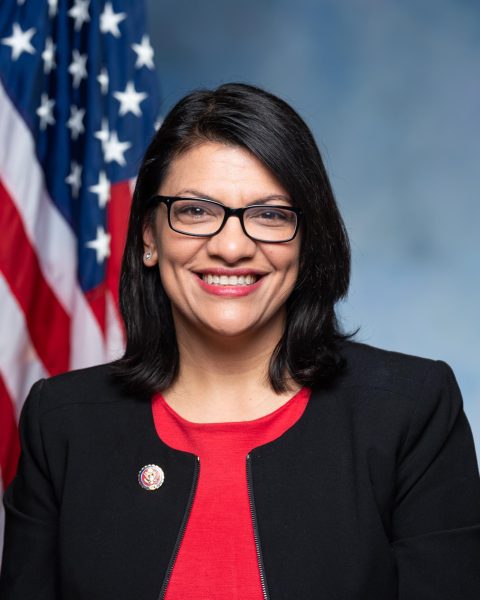 In 2018, Rashida Tlaib made history after winning the congressional seat for Michigan’s 13th district. She became one of the first two Muslim women to be elected in Congress and the first Palestinian-American woman ever to serve in Congress. Tlaib’s political career first began when she won a seat in the Michigan State Legislature, where she organized the We Have a Right To Breathe campaign in order to get polluting semi-trucks off neighborhood streets.
In 2018, Rashida Tlaib made history after winning the congressional seat for Michigan’s 13th district. She became one of the first two Muslim women to be elected in Congress and the first Palestinian-American woman ever to serve in Congress. Tlaib’s political career first began when she won a seat in the Michigan State Legislature, where she organized the We Have a Right To Breathe campaign in order to get polluting semi-trucks off neighborhood streets.
Since then, Tlaib has used her position in the government to serve the people she represents in a way few other politicians do. In February, she proposed a bill with the purpose of reducing youth homelessness through a pilot program that would provide $1,400 in direct aid for 36 months to emancipated minors and homeless persons under the age of 30. The same month, she introduced the Stop Politicians Profiting from War Act. This aims to prevent members of Congress and their spouses, as well as dependents, from trading defense stocks and having financial interests with companies who do business with the Department of defense. Most recently, she introduced the Living Wage for Musicians Act, which would allow artists to receive streaming royalties equal to a full-time job of $15 per hour, a stark contrast to the $0.003 royalties musicians currently obtain from Spotify. Tlalib’s work has consistently focused on the working-class and marginalized peoples, as well as the protection of their rights.
From an iconic Mexican-American singer to a vibrant gay rights activist, women continue to lead crucial movements for freedom. Perseverance, compassion and solidarity are extremely necessary in a time in which billions of women endure dehumanizing rhetoric, systemic disadvantages and brutal violence. As the world becomes increasingly hostile towards women, it is imperative to honor the legacies of the women who courageously fought against the patriarchy by refusing to lose hope for liberation and working towards a better future for everyone.



